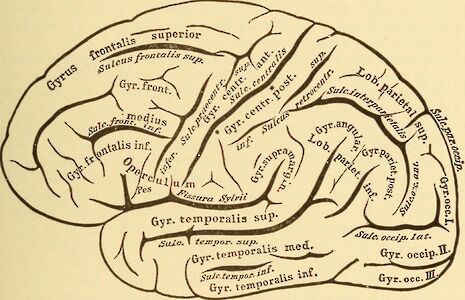The stigma around mental health isn’t what you think it is
It isn’t always those around us who provide our hesitations over mental health

A little over two months ago I was diagnosed with severe depression and prescribed antidepressants. The news didn’t come as a huge surprise, but that didn’t make it any less difficult to hear, and since then I have been trying to come to terms with it and to understand it somehow. I am not ashamed of my depression; I am frustrated, puzzled and upset by it, but I am not ashamed. It can still be a difficult topic for me to talk about; it’s a complex question and one that requires time, but I wanted to write this article to highlight just how important and helpful it has been for me to talk about mental health.
What surprised me was my own reaction
Being prescribed antidepressants was a mixed affair. It came as a huge weight off my shoulders because I finally had an explanation and a name for what I was feeling, and knowing what I was up against meant that I could find ways to tackle it. But it was also crushing. I was sick and would take a long time to heal, if I ever did. I was told that it was likely my depression would be something that could be managed but that might never truly go away. I’ll skip over the long list of the side effects that come with the medication; they’re normal and affect everyone differently. I’m still not fully adjusted to them, but the fact that I am already able to get out of bed pretty much every day and focus on my work again is for me a huge sign of progress.
What surprised me the most wasn’t other people’s reactions when I told them what I was struggling with. They were all incredibly supportive, especially my boyfriend. What surprised me was my own reaction. I’m more than familiar with the struggles of mental health: a lot of my family and friends have anxiety, depression or other issues, and I’ve always seen how none of it is their fault and been there to support them. So why did I have such a hard time accepting that I was the one with depression and that I was the one on medication? I still don’t have an answer to this. I guess that part of it was not wanting it and another part how accepting it meant having to face it and deal with it. I was surprised to find that the biggest source of stigma was myself.
Reading other people’s stories and hearing about their experiences validated my own
What helped me to accept it was the support that I received. It was hearing first-hand how other people had gone through something similar. I spent hours scouring the internet for blogs and videos from other people who were going through the same as me. Each time that I read a new blog post, I felt a little better and I understood a little more. The thing with depression is that it often makes you feel incredibly alone and isolated. For me, a lot of it is about negative feelings, thoughts and emotions, which are hard to describe and explain to someone who hasn’t experienced depression themselves, which only reinforces the feelings of isolation. But my depression also lets me have good moments: reading other people’s stories and hearing about their experiences validated my own. It was comforting and reassuring to find that I wasn’t alone as I had thought and that there was light at the end of the tunnel, despite what depression would have me believe.
Raising awareness about mental health is important, it reduces the stigma surrounding it and helps it become acceptable within society. But the most important reason to talk about mental health, in my opinion, is for those who are suffering from it themselves. Mental health is “all in your head”, which doesn’t mean that it’s not real but that it’s often hard to pin down or point out. Think about it: if the mind that you use to judge reality and formulate ideas is sick, how are you going to be able to see if something is wrong within yourself, especially if that’s all you’ve ever known? One day, as I was sat on my bed crying my eyes out, a friend knocked on my door and gave me a hug. They told me that they had gone through something similar, and that I had already come a long way, just by accepting my depression and managing to get two hours of work done. That did so much for me; I got my smile back again and found enough strength to go and make myself some dinner.
I’ve found that acceptance is one of the hardest things with mental health, accepting that there are no easy solutions and each day needs to be addressed as it comes. It’s a process, but having people acknowledge and validate your experiences and being able to talk openly about mental health is one of the most valuable and comforting parts of this process.
 News / Copycat don caught again19 April 2024
News / Copycat don caught again19 April 2024 News / Emmanuel College cuts ties with ‘race-realist’ fellow19 April 2024
News / Emmanuel College cuts ties with ‘race-realist’ fellow19 April 2024 Theatre / The closest Cambridge comes to a Drama degree 19 April 2024
Theatre / The closest Cambridge comes to a Drama degree 19 April 2024 News / Acting vice-chancellor paid £234,000 for nine month stint19 April 2024
News / Acting vice-chancellor paid £234,000 for nine month stint19 April 2024 Interviews / ‘People just walk away’: the sense of exclusion felt by foundation year students19 April 2024
Interviews / ‘People just walk away’: the sense of exclusion felt by foundation year students19 April 2024





